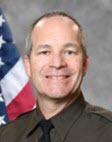
The View from the Street: What FPs need to know about Fentanyl and Illicit Drugs
Join Family Physician Rebecca Trotsky-Sirr and Sergeant Brian Gunsolley for a discussion of how patients are obtaining Fentanyl and other synthetic opioids and how physicians can help their patients recognize and understand the dangers of non-prescribed medication as well as encourage the use of reversal agents. In addition, resources will be provided to encourage more use of Medication Assisted Treatment.
Learning Objectives:
At the end of this session, learners should be able to:
- Describe how Fentanyl is being distributed, obtained and used
- Communicate more effectively with patients about the dangers of Fentanyl and illicit drugs, including Xylazine and encourage the use of reversal agents: Naloxone/Narcan, Kloxxado
- List resources available regarding Medication Assisted Treatment (MAT)
Target Audience:
This activity is designed for family medicine physicians, and other primary care team members.
Participation and Credit:
Learners must register to participate in and receive credit for this online educational activity. Read the target audience, learning objectives, and author disclosures. Study the educational content online and complete the activity evaluation. Your certificate will be available to you as a downloadable link. You may print the certificate, but you cannot alter it. For information on applicability and acceptance of continuing education credit for this activity, please consult your professional licensing board.
Unlabeled Use Disclosure:
This activity will not include discussions of products or devices that are not currently approved for use by the Food and Drug Administration (FDA), and the curriculum clearly indicates this fact.
Support:
This activity is supported by the California Academy of Family Physicians.
Fee:
There is no charge for this activity.
Cultural/Linguistic Competency:
CAFP policy and California state law requires that each learning activity have elements of cultural and linguistic proficiency included in the content. The definition of cultural and linguistic competency is the ability and readiness of health care providers and health organizations to humbly and respectfully demonstrate, effectively communicate, and tailor delivery of care to patients with diverse values, beliefs, identities, and behaviors, in order to meet patients’ social, cultural, and linguistic needs as it relates to patient health. This activity meets these requirements.
Implicit Bias:
CAFP policy and California state law requires that all CME activities comprising a patient care element include either (1) examples of how implicit bias affects perceptions and treatment decisions of physicians and surgeons, leading to disparities in health outcomes and/or (2) strategies to address how unintended biases in decision-making may contribute to health care disparities by shaping behavior and producing differences in medical treatment along lines of race, ethnicity, gender identity, sexual orientation, age, socioeconomic status, or other characteristics. This activity meets these requirements.
Privacy Policy:
The California Academy of Family Physicians (CAFP) is committed to protecting the privacy of its members and customers. CAFP maintains safeguards to store and secure information it has about members and customers. The safeguards may be physical, electronic or procedural. For more information, contact [email protected].
Questions:
For questions regarding the content of this activity or for technical assistance, contact [email protected].
The CAFP has made all reasonable efforts to ensure that information contained herein is accurate in accordance with the latest available scientific knowledge at the time of accreditation of this continuing education program. Information regarding drugs (e.g., their administration, dosages, contraindications, adverse reactions, interactions, special warnings, and precautions) and drug delivery systems is subject to change, however, and the learner is advised to check the manufacturer's package insert for information concerning recommended dosage and potential problems or cautions prior to dispensing or administering the drug or using the drug delivery systems.
Approval of credit for this continuing education program does not imply endorsement by CAFP of any product or manufacturer identified.
Any medications or treatment methods suggested in this CME activity should not be used by the practitioner without evaluation of their patient's condition(s) and possible contraindication(s) or danger(s) of use of any specific medication.
Copyright:
© 2023 California Academy of Family Physicians. No part of this activity may be used or reproduced in any manner whatsoever without written permission except in the case of brief quotations embedded in articles or reviews.
Rebecca Trotzky-Sirr, MD

Dr. Rebecca Trotzky-Sirr is the Director of Addiction & Community Medicine LA General Med Center. She is board certified in Family Medicine and Addiction Medicine and is faculty in the Department of Emergency Medicine at USC. Additionally, she coordinates expansion of treatment for opioid use disorder as the Southern California Regional Coordinator for The Bridge, formerly the CA Bridge Program.
Sergeant Brian Gunsolley

Sgt. Gunsolley is Supervisor, Community Engagement Unit, Orange County Sheriff’s Department
Disclosure of Interest Statements:
The Committee on Continuing Professional Development and CME will be responsible for mitigating any relevant financial interests disclosed by an individual who may have influence on content, who have served as faculty, or who may produce CME/CPD content for the CAFP. Mitigation may include learner notification, peer review of content before presentation, requirement of EB-CME, changing topics, or even dismissing a
potential faculty member.
It is the policy of the CAFP to ensure independence, balance, objectivity, scientific rigor, and integrity in all continuing education activities. All individuals with potential to influence the content of this program have submitted Disclosure of Interest declarations that have been reviewed according to policy. Learner notification of declarations is below. All individuals with relevant financial interests with ineligible companies have been contacted by CAFP staff or CCPD members, and issues of conflict have been discussed and mitigated.
Disclosure:
Dr. Trotzky-Sirr has no relevant financial relationships with ineligible companies to disclose.
CME Planners:
The following planners have no relevant financial relationships with ineligible companies to disclose: Jerri Davis, Laurie Isenberg
The AAFP has reviewed The View from the Street: What FPs need to know about Fentanyl and Illicit Drugs - Enduring and deemed it acceptable for up to 1.00 Enduring Materials, Self-Study AAFP Prescribed credits. Term of Approval is from 06/22/2023 to 06/22/2024. Physicians should claim only the credit commensurate with the extent of their participation in the activity.
AAFP Prescribed credit is accepted by the American Medical Association as equivalent to AMA PRA Category 1 Credit™ toward the AMA Physician's Recognition Award. When applying for the AMA PRA, Prescribed credit earned must be reported as Prescribed credit, not as Category 1.
Available Credit
- 1.00 AAFP Prescribed

 Facebook
Facebook X
X LinkedIn
LinkedIn Forward
Forward